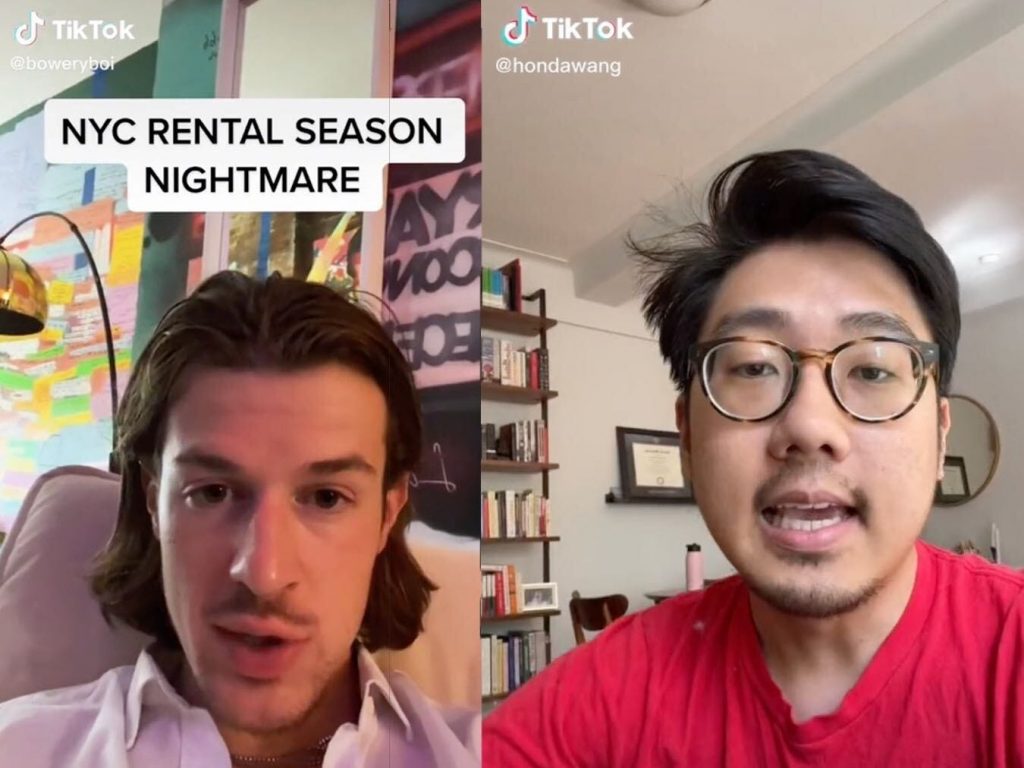- Evan Rugen discusses New York real estate on TikTok.
- In a recent video, he says a tenant law is inadvertently keeping affordable units off the market.
- The law was created to protect renters, but Rugen says it could be making their lives more difficult.
New York is neck deep in a housing shortage, but there are thousands of vacant apartments that could be available to the city's renters — if landlords will let them move in.
Evan Rugen, the founder of real estate investment firm LVL Group NY, says a political fluke is allowing landlords to keep affordable units off the market. In a TikTok video that has more than 40,000 views, Rugen says a 2019 act that was created to protect affordable rent for New Yorkers has done the exact opposite.
It all boils down to the elusive New York real estate dream: the rent-regulated apartment. New York's Housing Stability and Tenant Protection Act of 2019 was created to strengthen rent control, regulate what happens to an apartment's price when a renter vacates, and ensure tenants can stay in their units for longer.
The law repealed a former rule that allowed landlords of rent-regulated units to automatically raise rents up to 20% when they became unoccupied, limiting the renovation costs landlords could recoup by increasing rents. Today, this means that when a rent-stabilized unit becomes vacant, a landlord is less incentivized to replace the tenant.
Instead of keeping renting affordable, Rugen says the law has helped to drive rents in New York City to astronomical levels. This is because landlords realize their rent-stabilized units can't be listed at market rate after they invest in upgrades — so many have refrained from listing them at all as they wait for NYC housing laws to change.
The Community Housing Improvement Program, an association of nearly 4,000 owners and managers of more than 400,000 rent-stabilized properties across New York City, estimates that out of the more than 1 million rent-stabilized apartments in NYC, 20,000 units remain vacant as costs prevent landlords from listing them.
While it may seem more beneficial for landlords to rent out these units at a lower cost than to forgo any income at all, Rugen says the hesitancy is based on tenant longevity. Simply put, if a tenant has a good deal on rent, they're less likely to move elsewhere and the landlord may have to wait years to collect a higher rent.
"One of the biggest questions is, $100 better than $0?," Rugen said. "Well, no, because a rent stabilized tenant is very difficult to get out."
Though the law was created to better protect tenants, it could inadvertently be making their lives more difficult. New York City's pool of new housing hasn't kept up with population growth and that means rental competition has become stiff.
According to the real-estate management company Douglas Elliman, bidding wars accounted for about one in five lease signings in Manhattan in May. In Brooklyn, it was one in four new signings. Median rents in these boroughs climbed by 25% and 18% from the same period in 2021.
Without additional inventory, the Big Apple's housing shortage is likely to worsen — and that means rental prices will continue to climb.
'Landlords are keeping New Yorkers hostage'
As rents climb and inventory levels decline, more NYC renters are becoming priced out of the market — and the eviction rate is climbing.
The Coalition for the Homeless, a homeless-advocacy organization, has attributed an uptick in the number of homeless New Yorkers over the past 10 years to a lack of affordable housing.
In April, The Real Deal reported, the Community Housing Improvement Program asked state lawmakers to allow landlords of rent-stabilized units to set a new first rent after a tenant moves out — in exchange, the landlords of the 20,000 or so vacant rent-stabilized units would renovate and rent them again. The report suggested, however, that lawmakers would be unlikely to accept the deal.
Honda Wang, who helped to advocate for HSTPA while working with the Democratic Socialists of America party, says to make sure affordable housing is available for all New Yorkers, the solution will not be "giving into landlord greed" but instead building more social housing that does not exist for profit.
"There is so much housing inventory that landlords are not willing to release, simply because they think they can get more money if the laws were to change," Honda said in TikTok response to Rugen's video. "Landlords are holding New Yorkers hostage."
While Rugen does believe landlords should adjust their behavior to make housing affordable once again, he thinks a good first step will be to modify HSTPA. He suggests that the law be rewritten so that the previous vacancy bonus of 20% is decreased to 10% as well as incentivizing landlords to renovate their vacant units.
"I think the solution to this problem is to take a deep dive back at these laws and meet somewhere in the middle," Rugen told Insider.
